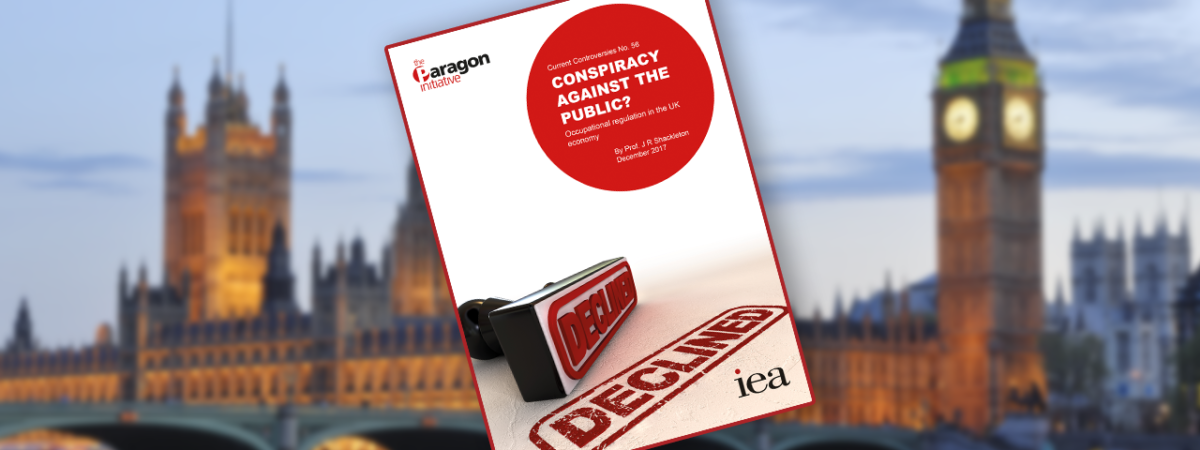WHO proposals for new taxes on food and drinks would cost a typical UK household up to £458 per year
SUGGESTED



The WHO is working closely with the businessman Michael Bloomberg who has spent millions of dollars campaigning for soda taxes in several US states. Since being made a WHO Ambassador for Noncommunicable Diseases in 2016 – a title he briefly shared with Robert Mugabe – the American billionaire has lobbied for taxes on food and drink to be adopted globally in an attempt to reduce obesity rates. He recently founded the Task Force on Fiscal Policy for Health to promote higher taxes on products that can be unhealthy if consumed in excess. Earlier this year, the Lancet journal devoted an entire issue to this campaign with an editorial by Larry Summers, co-chair of Bloomberg’s Task Force, who promised that his organisation would “engage the public, finance ministries, and others” in making the case for higher taxes on a number of fast-moving consumer goods.
It is well established that excise taxes and sales taxes are fiscally regressive – they take a greater share of income from the poor than from the rich. In Britain, for example, people in the poorest decile spend 34% of their disposable income on indirect taxes, including 2.9% on tobacco duty and 2.0% on alcohol duty. For those in the richest decile, the equivalent figures are just 14%, 0.1% and 0.9%.
For Bloomberg, the regressive nature of sin taxes is a feature, not a bug. In a recent event at the International Monetary Fund, he said:
“Some people say taxes are regressive but in this case – yes, they are. That’s the good thing about them. Because the problem is in people that don’t have a lot of money, so higher taxes should have a bigger impact on their behaviour and how they deal with themselves.”
But sin taxes are a reliable source of revenue precisely because they do not make people “deal with themselves”. For the most part, they simply raise the cost of living. Ostensibly, they are intended to reduce consumption of demerit goods and indirectly improve health, but they come with obvious costs. Demand for the products being targeted is price inelastic. Those who wish to achieve their optimal level of consumption (as judged by themselves) will be forced to pay significantly more.
Given the WHO’s repeated recommendations for new and/or increased taxes on food, non-alcoholic beverages and alcohol, I have calculated the impact on the price of a typical basket of goods purchased by a typical household if WHO Bloomberg succeed in raising the price of “unhealthy” food and drink by their preferred rate of 20%. A breakdown of the figures is available in this briefing paper, but the annual totals are as follows:
United Kingdom: £458
United States: $612
Italy: €547
Ireland: €607
This is based on a typical household (two adults, two children) that chooses to buy the same basket of goods post-tax as it did pre-tax. In practice, the price effect would lead to lower consumption and therefore less expenditure on the targeted items. However, as the goods in question are generally price inelastic, a 20% price rise would lead to sales falling by less than 20%. Moreover, any reduction in spending on the targeted products would not necessarily be money ‘saved’ as consumers would usually buy other products as substitutes.
Nevertheless, it is clear that the kind of taxes on food and drink proposed by the WHO and Michael Bloomberg would lead to a significant increase in the cost of living for consumers everywhere. The poorest households would be hit hardest and although my estimates focused on rich countries, the impact would be even more severe in developing countries.
Overall, the range of food and drink taxes proposed by WHO and Bloomberg could cost consumers in the United Kingdom £12.4bn per annum in additional tax. In the United States, the cost could be $72bn. In Ireland and Italy the cost could be €1bn and €13.5bn respectively. Even to a man of Bloomberg’s means, those are big numbers.
2 thoughts on “WHO proposals for new taxes on food and drinks would cost a typical UK household up to £458 per year”
Comments are closed.





So do you agree prices don’t affect demand?
So with average household income of 26000, that is about 3p on the basic rate of income tax. (from some very quick googling). Though income tax is progressive in the normal not the orwellian sense of the word, so the comparison is overly kind.